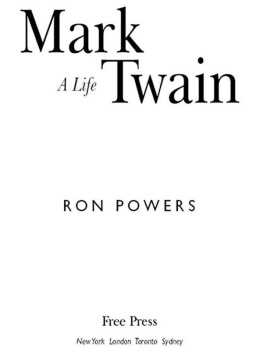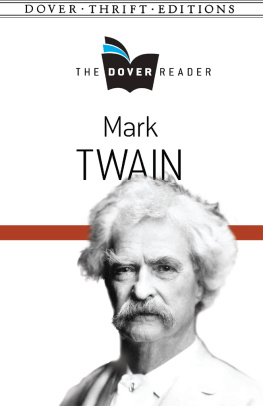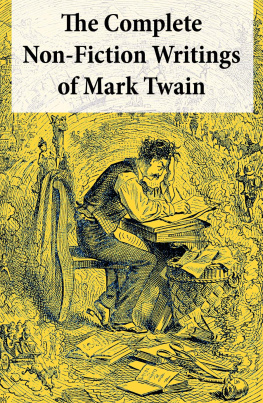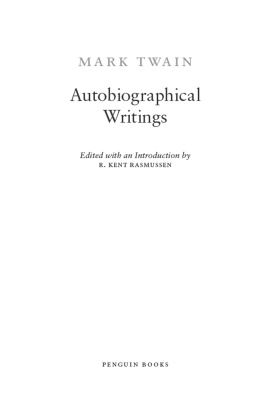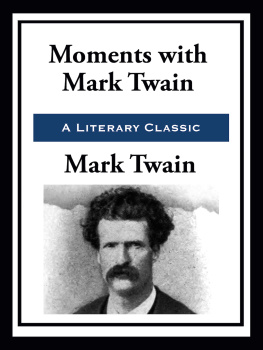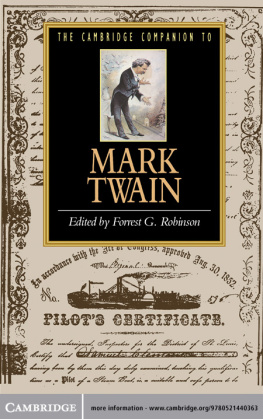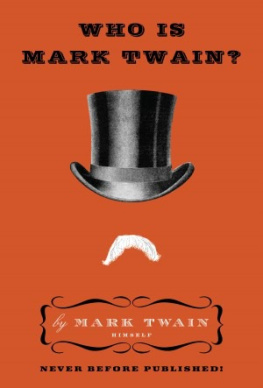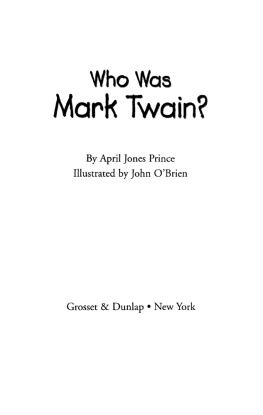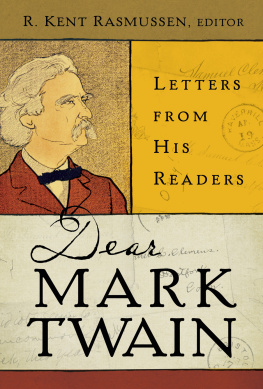Ron Powers - Mark Twain: A Life
Here you can read online Ron Powers - Mark Twain: A Life full text of the book (entire story) in english for free. Download pdf and epub, get meaning, cover and reviews about this ebook. year: 2005, publisher: Free Press, genre: Art. Description of the work, (preface) as well as reviews are available. Best literature library LitArk.com created for fans of good reading and offers a wide selection of genres:
Romance novel
Science fiction
Adventure
Detective
Science
History
Home and family
Prose
Art
Politics
Computer
Non-fiction
Religion
Business
Children
Humor
Choose a favorite category and find really read worthwhile books. Enjoy immersion in the world of imagination, feel the emotions of the characters or learn something new for yourself, make an fascinating discovery.
- Book:Mark Twain: A Life
- Author:
- Publisher:Free Press
- Genre:
- Year:2005
- Rating:3 / 5
- Favourites:Add to favourites
- Your mark:
Mark Twain: A Life: summary, description and annotation
We offer to read an annotation, description, summary or preface (depends on what the author of the book "Mark Twain: A Life" wrote himself). If you haven't found the necessary information about the book — write in the comments, we will try to find it.
In Mark Twain, Ron Powers consummates years of thought and research with a tour de force on the life of our cultures founding father, re-creating the 19th centurys vital landscapes and tumultuous events while restoring the human being at their center. He offers Sam Clemens as he lived, breathed, and wrote -- drawing heavily on the preserved viewpoints of the people who knew him best (especially the great William Dean Howells, his most admiring friend and literary co-conspirator), and on the annals of the American 19th century that he helped shape. Powerss prose rivals Mark Twains own in its blend of humor, telling detail, and flights of lyricism. With the assistance of the Mark Twain Project at Berkeley, he has been able to draw on thousands of letters and notebook entries, many only recently discovered.
It is hard to imagine a life that encompassed more of its times. Sam Clemens left his frontier boyhood in Missouri for a life on the Mississippi during the golden age of steamboats. He skirted the western theater of the Civil War before taking off for an uproarious drunken newspaper career in the Nevada of the Wild West. As his fame as a humorist and lecturer spread around the country, he took the East Coast by storm, witnessing the extremes of wealth and poverty of New York City and the Gilded Age (which he named). He traveled to Europe on the first American pleasure cruise and revitalized the prim genre of travel writing. He wooed and won his lifelong devoted wife, yet quietly pined for the girl who was his first crush and whom he would re-encounter many decades later. He invented and invested in get-rich-quick schemes. He became the toast of Europe and a celebrity who toured the globe. His comments on everything he saw, many published here for the first time, are priceless.
The man who emerges in Powerss brilliant telling is both the magnetic, acerbic, and hilarious Mark Twain of myth and a devoted friend, husband, and father; a whirlwind of optimism and restless energy; and above all, a wide-eared and wide-eyed observer who absorbed every sight and sound, and poured it into his characters, plots, jokes, businesses, and life. Mark Twain left us our greatest voice. Samuel Clemens left us one of our most full and American of lives.
No one understands the complicated American the world knows as Mark Twain better than Ron Powers. Finally, we have scholarship and writing worthy of the man. Powerss prose is insightful, elegant, and gets to the center of Twains life, humor, tragedy, and outrage.
Ken Burns
Ron Powers: author's other books
Who wrote Mark Twain: A Life? Find out the surname, the name of the author of the book and a list of all author's works by series.

